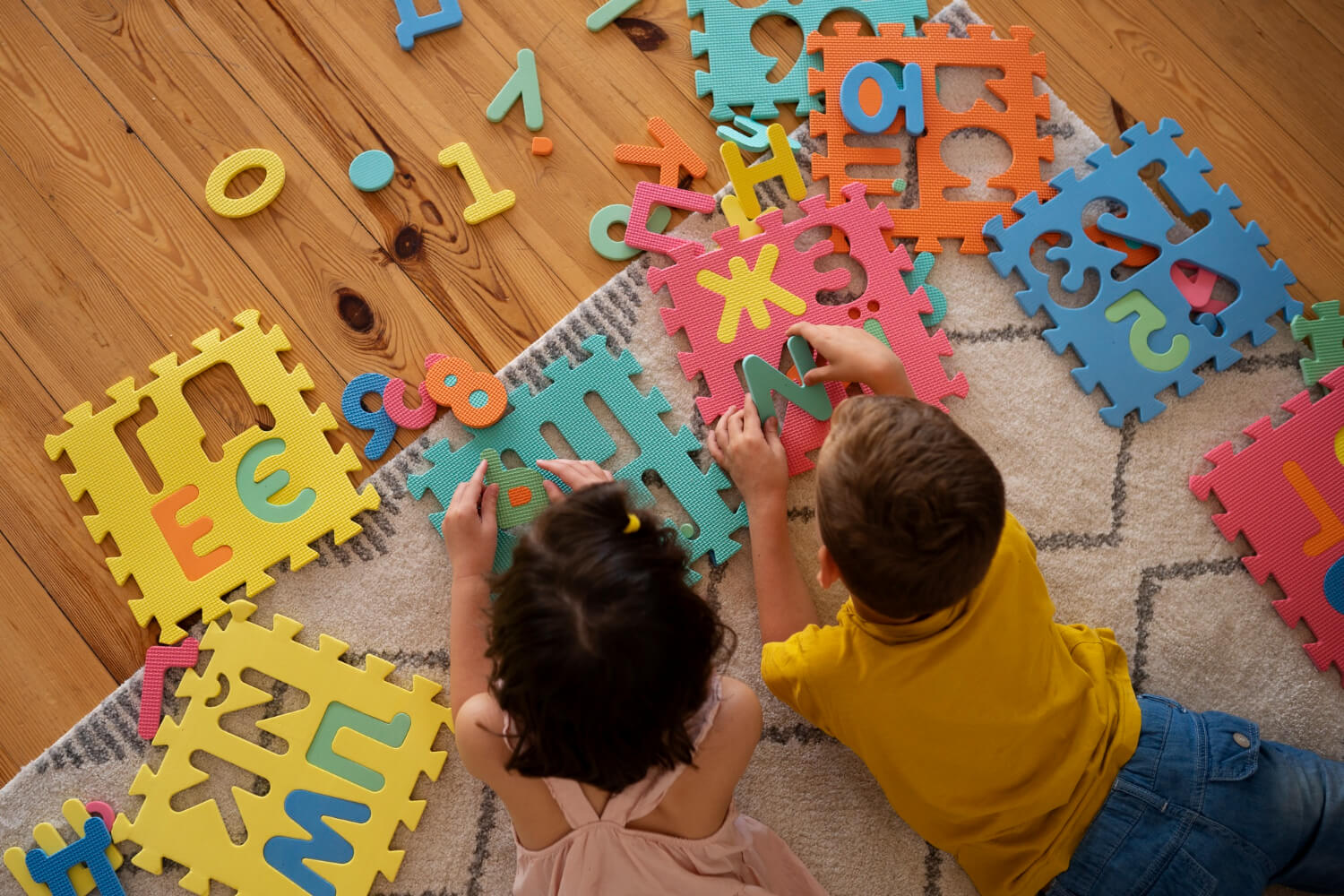Are you a parent or caregiver of a nursery schooler who has tantrums or behavioural issues?
Do you find yourself mystified by their sudden mood swings or outbursts, wondering if you’re alone sailing in a turbulent sea?
Well, fret not, many parents and teachers are sailing in the same boat.
In this article, we’re here to offer strategies to help steer your little one toward smoother emotional development.
Let’s uncover the secrets of handling common behavioural challenges of nursery school kids!
Nursery School
Nursery school is often a time of exploration for young learners. However, they go through a lot of emotional turmoil leading to behavioural challenges, making their parents feel overwhelmed. So it is critical to address these behavioural challenges.
Addressing Behavioural Challenges
In nursery schools, children are not only learning ABCs and 123s; they are learning various concepts like social or emotional skills which shape their personalities. Therefore addressing their behavioural issues is necessary as it can become hurdles in their development.
Understanding and addressing these challenges in a supportive and constructive manner will shape their future behaviour and contribute to their overall well-being.
The skills and coping mechanisms they develop during these years will positively impact them in school and throughout life.
Neglecting these challenges and addressing them later may become more challenging.
The Impact Of Behavioural Issues On A Child’s Development
As per the best international school in Nagpur, behavioural issues can affect children’s social interactions, cognitive growth, emotional resilience, and even their self-esteem.
It will hinder a child’s ability to develop healthy relationships, progress academically, and contribute to emotional disturbance.
Understanding Common Behavioral Challenges
- Temper Tantrums
Temper tantrums are a familiar sight in kids, but understanding the reason is the first step in managing them effectively.
The reason for tantrums can be frustration, exhaustion, hunger etc., and the inability to express their emotions or needs might lead to a tantrum.
Toddlers and nursery school kids cannot express their emotions effectively so they use temper tantrums to communicate their emotions and needs.
- Aggression
- Aggression can be of many forms such as physical aggression (hitting, biting), verbal aggression (yelling), or relational aggression (exclusion, spreading rumours). Understanding the specific forms will help in addressing the issue effectively.
- The underlying causes of aggression can range from frustration to unmet needs or just for the sake of seeking attention.
- Separation Anxiety
- Separation anxiety is a common occurrence in kids aged 8-14 months to 2 years. The sudden realisation that they have to be separated for a few hours can lead to anxiety but it’s a normal part of emotional development.
- Signs and symptoms of separation anxiety include clinginess, crying during separation, resistance to going to school etc. Providing them with support and reassurance is needed to ease the child’s anxiety.
- Attention-Seeking Behaviours
- Attention-seeking behaviours are common in nursery students as they are exposed to the social world so they get jealous when someone is getting attention such as sibling rivalry, a new baby in the family etc.
- Students may struggle to form healthy relationships with peers, and family members or may even get frustrated.
- .
Strategies for Dealing with Behavioral Challenges by the Best International School in Nagpur
Communication and Empathy
- Active Listening and Understanding the Child’s Perspective
- Parents need to take time to listen to their children actively, allow them to express their feelings, and see if some unmet needs are the root cause.
- Nurture emotional intelligence by helping children to identify and express their emotions using emotional vocabulary. When children become more aware of their feelings, they learn to manage them better.
- Positive Reinforcement
- Reward children when they showcase positive actions as this will keep them motivated to exhibit desirable behaviour.
- Praising may seem simple but it’s yet an effective method for encouraging positive behaviour.
Setting Clear Boundaries and Expectations
- When children understand that the rules remain consistent, they are more likely to follow them.
- Creating a structured environment helps children to develop routines.
Redirection and Distraction
When you notice your child engaging in negative behaviour, try to shift their focus to some interesting activity. For instance, if your child is becoming angry, offer them a puzzle or colouring book to divert their energy into a productive one.
Parent-Teacher Collaboration
Teachers spend a significant amount of time with children so they are the ones who may notice patterns of behaviour first. Parents can communicate with teachers to find what’s best for their development and well-being.
- They should document recurring issues, and identify triggers and patterns.
- They should offer emotional support and guidance to manage their emotions.
- Teachers should establish and enforce rules consistently helping them to adjust to a structured environment.
- They should communicate with parents regularly to address the child’s behaviour or convey progress fostering a collaborative approach.
- Teachers should share resources such as books, articles, and tools to help parents address behavioural challenges.
Early Intervention and Professional Help
While many behavioural challenges can be managed with effective strategies, some might need professional intervention.
- Notice if a child’s behavioural challenges are severe and ongoing.
- Check what is the reason for the sudden behaviour change.
- If a child’s behaviour does not improve despite consistent effort then it’s time to involve a specialist.
Conclusion
These formative years of Nursery School are an opportunity to lay the foundation for emotional and social growth. Parents must remember that behaviour change doesn’t happen overnight, so they should be handled with patience.
Together, parents and teachers can provide children with a nurturing environment, empowering them to become confident individuals ready for the future.
